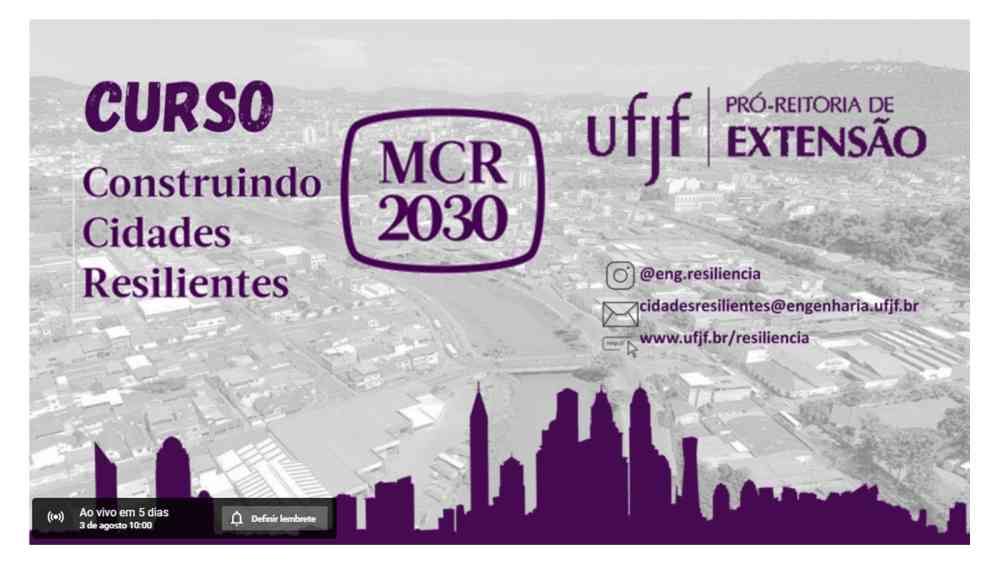The Federal University of Juiz de Fora (UFJF) launches an updated version of its online course on "Making Cities Resilient – MCR2030"

Municipal officials working in urban development and planning, environmental management, civil defense, health, social affairs, among others, now have another way to discover and master the tools of the Making Cities Resilient 2030 (MCR2030) initiative. After a successful first edition of the course developed with the technical support of UNDRR’s Regional Office for the Americas and the Caribbean, this new MOOC on Making Cities Resilient offers a capacity development opportunity for local level governments.
The MOOC presents in five modules the MCR2030 tools and methodologies; The Quick Risk Estimation Tool (QRE), the Self-Assessment Tool for Disaster Resilience (Scorecard), and its Addendum for Health Systems, as well as the Ten Essentials to make cities resilient. The MOOC also promotes strengthening of the participant’s capacities for urban resilience and disaster risks assessment and provides them with operational insights on formulating a local action plan for disaster risk reduction and resilience for their city.
During the first edition of the course, that took place between August and September 2021, that UFJF and MCR2030 organised a series of workshops to promote collaborative, learning-by-doing activities around MCR2030’s Toolkit. The participants had the chance to connect with ICLEI-South America, MCR2030’s colleagues, who joined the workshops to provide further orientations on the linkages among disaster risk reduction, climate action, and sustainable urban development.
Additionally, on September 14th, representatives from ICLEI-South America, University of Juiz da Fora, and UNDRR met in a conversation that emphasized the need to display impactful urban resilience practices to directly contribute to strengthening cities’ capacity to develop local strategies and plans that can enhance urban resilience.
You can watch the event here (Portuguese):
The MOOC will be available for a maximum of 1000 participants and registration is open. Additional information can be found in this link (Portuguese).
Registration to the MOOC here.